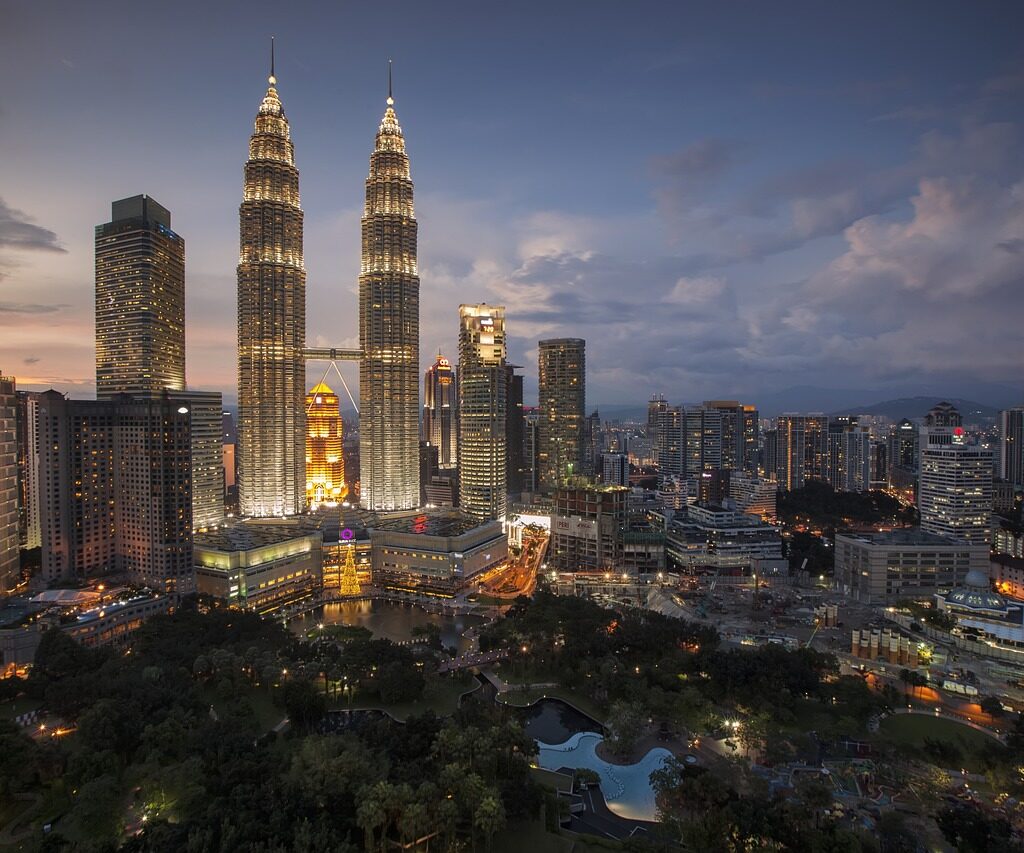The European Union (EU) and Malaysia have officially resumed negotiations for a Free Trade Agreement (FTA), aiming to enhance economic cooperation and unlock new trade opportunities. The talks, which were previously suspended in 2012, are expected to address key issues such as market access, investment protection, and digital trade.
Key Priorities of the Negotiations include expanding market access, as the agreement seeks to eliminate tariffs and reduce trade barriers for goods, services, and investments, but also investment protection. The latter aims to create a stable and predictable environment for investors. Furthermore, the goal is to fuel digital trade flows, thereby addressing data flows, e-commerce regulations, and cybersecurity cooperation, as well as sustainable development, which revolves around ensuring that trade policies align with environmental and labor standards.
European Commission President Ursula von der Leyen welcomed the move, stating:
“A free trade agreement between Europe and Malaysia would take our trade relationship to the next level. With trade between us already worth €45 billion, this agreement has the potential to unlock even greater opportunities for our businesses and citizens.”
The EU is currently Malaysia’s fourth-largest trading partner, with bilateral trade in goods valued at €45 billion in 2023 and trade in services amounting to €11 billion in 2022.
Reaching out, building partnerships and creating new opportunities for our people.
That's the path Europe and Malaysia are confirming today.⁰⁰I'm pleased to say that we're relaunching negotiations on a Free Trade Agreement ↓— Ursula von der Leyen (@vonderleyen) January 20, 2025
Deforestation Directive Casts Shadow Over Trade Talks
Despite the optimism surrounding the renewed negotiations, tensions remain over the EU’s Deforestation Regulation (EUDR), which has strained relations with several key trading partners. Malaysia and Indonesia have been vocal critics of the directive, arguing that the EU refuses to recognize their national deforestation standards for palm oil exports, despite international NGOs praising both countries for significantly reducing deforestation in recent years. A 2023 World Resources Institute report specifically praised Malaysia’s progress, for example. This follows Malaysia introducing several environmental initiatives in the palm oil industry, including carbon sequestration and extensive tree-planting programs, all supported by the Malaysian Palm Oil Green Conservation Foundation (MPOGCF).
Also the country’s , the MSPO (Malaysian Sustainable Palm Oil) standards played a big role. Malaysia, which has been lamenting the protectionist and burdensome nature of EUDR, particularly for small farmers, has been actively seeking EU recognition of MSPO certification, arguing that MSPO is already aligned with global sustainability standards and includes strict traceability, environmental, and labor protections. Despite this, the EU refuses to consider Malaysia’s equivalent to its own, unlike the United Kingdom, which has recognized them. The UK’s approach helped it gain entry into the Comprehensive and Progressive Agreement for Trans-Pacific Partnership (CPTPP), a trade bloc with a combined GDP of £12 trillion. This was seen as a significant post-Brexit victory, while the EU has struggled to finalize major trade agreements in recent years.
#EUDR | Effective implementation of the EU #Deforestation-Free Regulation requires swift action to put in place all the necessary systems and clear guidance for both authorities and businesses.
Explore BusinessEurope’s key recommendations: https://t.co/9rWS6Zapdx pic.twitter.com/bMcoHdOx70
— BUSINESSEUROPE (@BusinessEurope) February 3, 2025
Growing Global Opposition to EU Regulations
Criticism of the EUDR is not limited to Malaysia and Indonesia. Countries such as Australia, Brazil, and the United States have also voiced concerns, arguing that the directive imposes unnecessary bureaucratic burdens on exporters. Mounting pressure led the EU to delay the regulation’s full implementation until 2026, also because the European Commission had not finished its guidelines on when imports can or cannot be considered risky. Malaysia’s progress in terms of reducing deforestation in the palm oil sector is raising hopes the country will effectively be considered “low-risk” by the EU. In any case, many believe the EU’s reluctance to acknowledge local certification schemes creates unfair trade barriers.
Meanwhile, tensions between the EU and the United States over environmental trade regulations may escalate further. Howard Lutnick, former CEO of Cantor Fitzgerald and a key figure in Donald Trump’s economic team, has hinted that the U.S. may retaliate against EU environmental, social, and governance (ESG) regulations, which include EUDR, that negatively impact American companies. If Trump secures a second term, he is expected to take a tougher stance on EU trade policies than his predecessor, Joe Biden, who already expressed concerns over the EUDR.
The ESG excuse as a hidden tariff. A classic.
The US may use “trade tools” to retaliate against European ESG regulations that affect American companies, said Howard Lutnick, who’s US President Donald Trump’s pick to become commerce secretary https://t.co/GpaxLJXbFU vía @climate
— Daniel Lacalle (@dlacalle_IA) February 12, 2025

